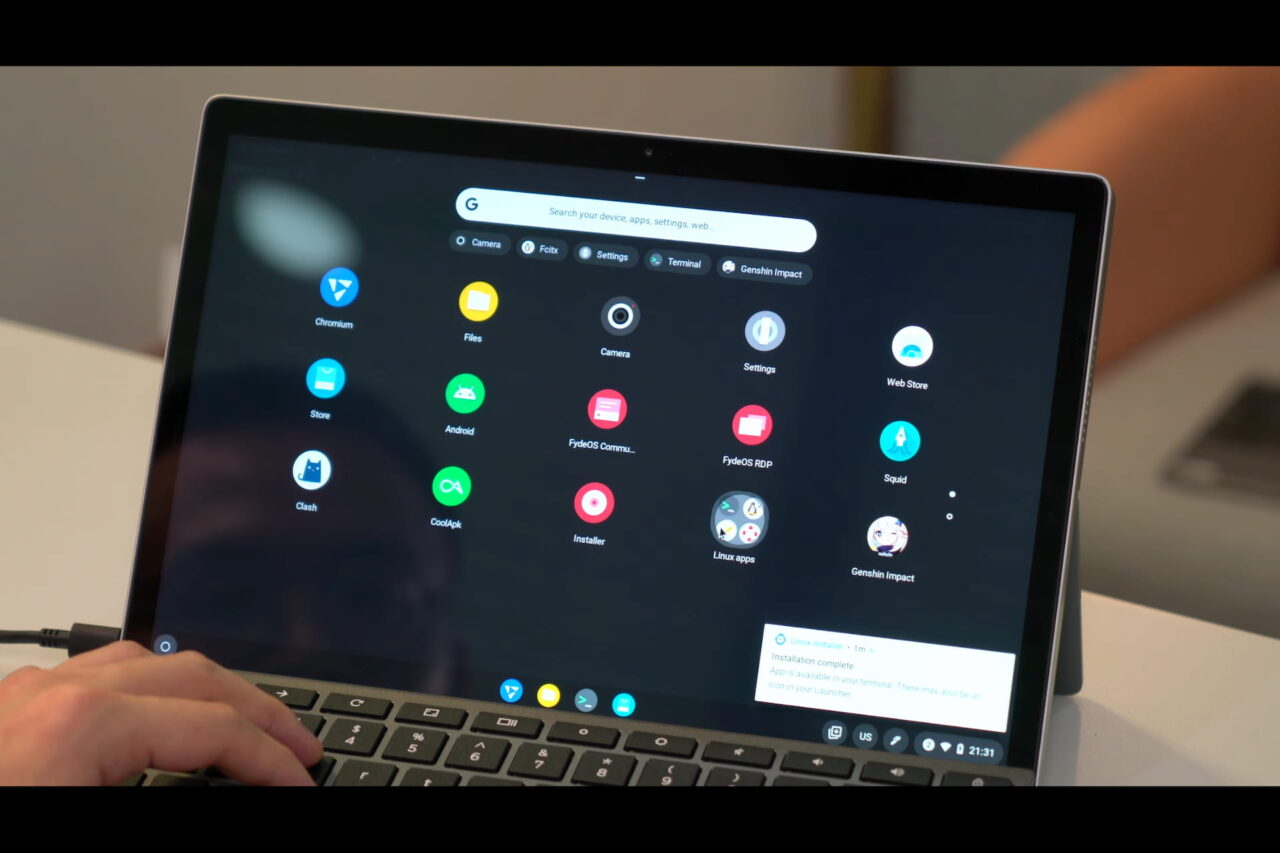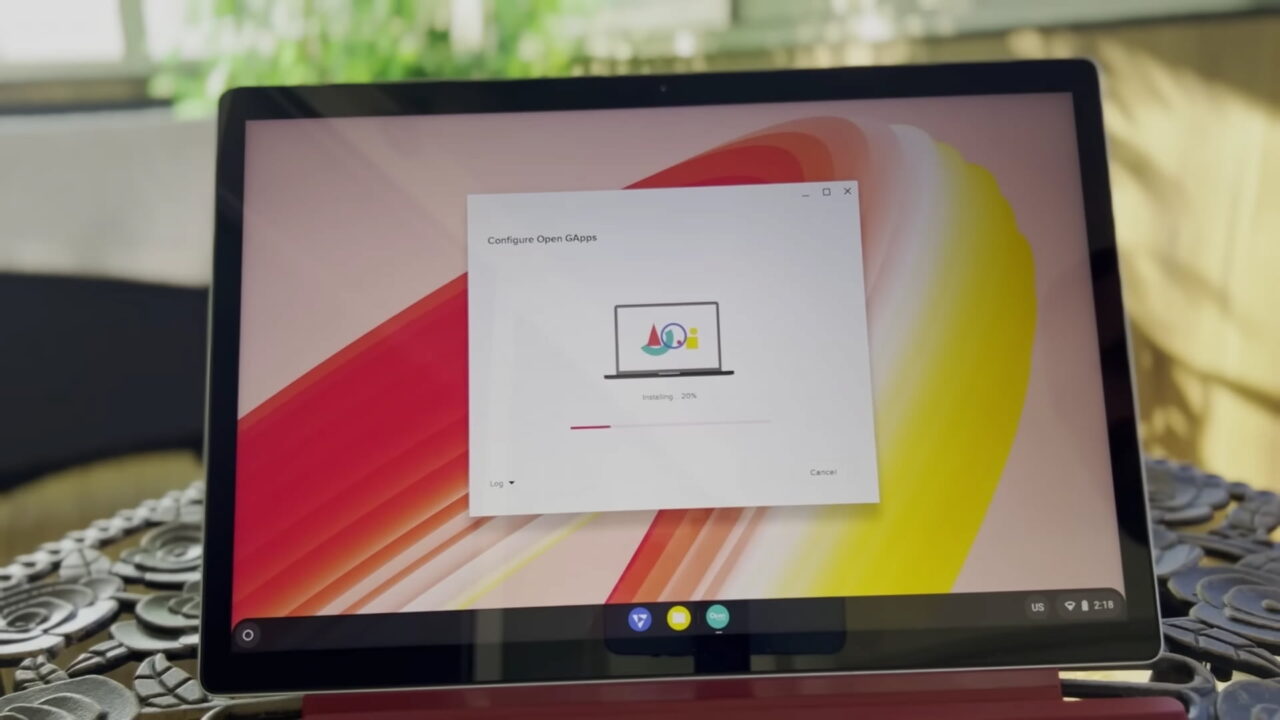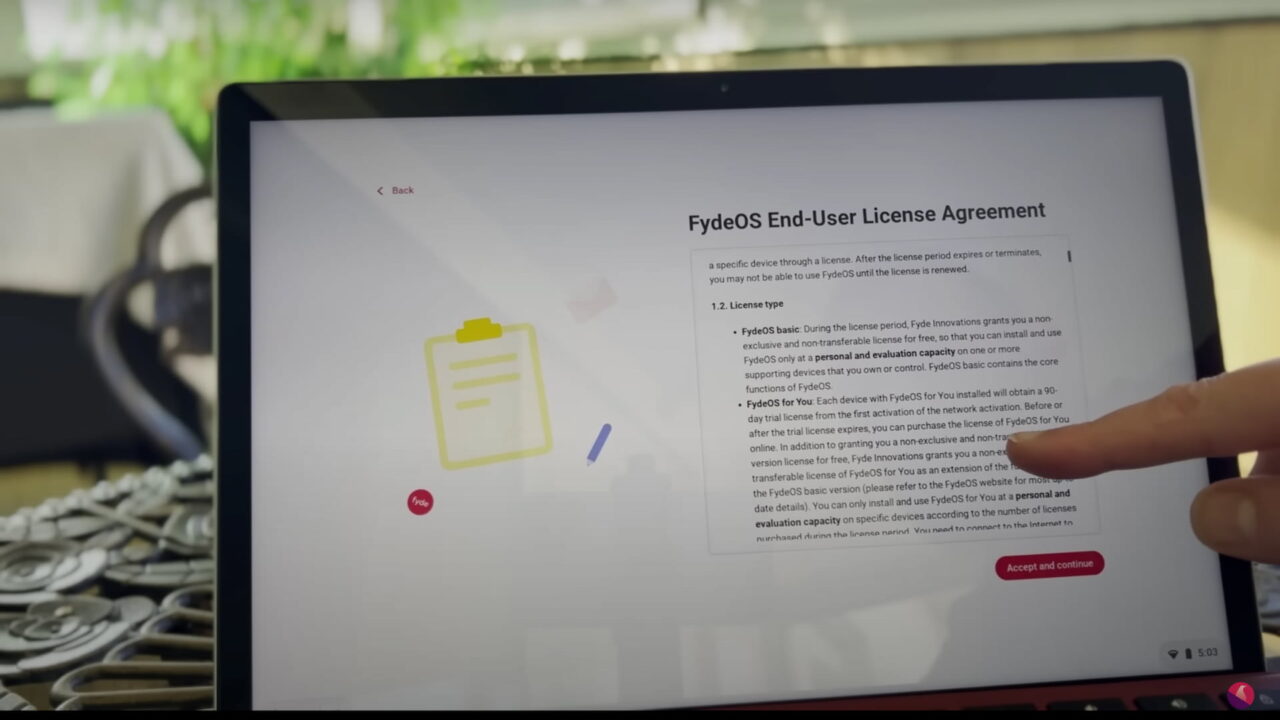Although it’s been around for a few years, I only recently became familiar with FydeOS. And FydeOS might be a better solution than ChromeOS Flex for older computers. It’s a free operating system that you can install on just about any computer and if you saw it, you’d swear it’s ChromeOS. That’s because FydeOS is essentially ChromiumOS, which is open source software that ChromeOS is built upon. So comparing FydeOS vs ChromeOS Flex is worth the look.
What is FydeOS?
As I mentioned, FydeOS is built with the open source ChromiumOS software. That means all of the non-Google features and functions of ChromeOS are in there. You basically get the same setup experience, the Chrome browser, ChromeOS launcher, Files app, and most of the same ChromeOS settings.
Here’s an image of FydeOS in tablet mode, which should look entirely familiar to anyone with a ChromeOS tablet or convertible Chromebook:

Essentially, think of FydeOS as a de-Googled version of ChromeOS. The company uses ChromiumOS as a base system, then adding its own additional features and branding.
You can, of course, connect to Google services if you want to but you don’t have to. Fyde offers its own cloud services, which are optional to use. When setting up FydeOS, you can create a Fyde account or you can simply create a local account on the device. With Chromebooks, and ChromeOS Flex, you have to use a Google account.
By the way, the device shown above is the coming soon FydeTab Duo, which sells for $599.99. That’s actually how I found out about FydeOS as I saw some early reviews of the FydeTab Duo, such as this one:
FydeOS vs ChromeOS Flex
Ok, so we’ve established that FydeOS is similar to ChromeOS Flex. You can download either of these operating systems to a USB stick both to test run them and to install them. So what does FydeOS bring to the table that ChromeOS Flex doesn’t, other than it doesn’t use proprietary software.
Right off the bat, you can install FydeOS on a wider range of devices although Macs are not one of them. If you have an old Mac, ChromeOS Flex is the better way to breathe new life into it. Just be sure to follow the installation instructions to the letter, which I didn’t do during my testing.

By “wider range of devices”, I mean FydeOS supports PCs with Intel third gen processors all the way up to 12th gen Intel processors as well as AMD chips. It can also be installed in in VMWare. And there are FydeOS builds for specific devices such as the Raspberry Pi, the 2013 & 2015 Chromebook Pixel, Pine64 Pinebook Pro, and Microsoft Surface products.
Note that you will need to disable secure boot from a device before installing FydeOS. That means it won’t easily work, or work at all, on most Chromebooks. ChromeOS Flex is still the better option for old Chromebooks, even if it’s not officially supported.
ChromeOS Flex includes support for Linux, as does FydeOS. However you don’t get Android app support with ChromeOS Flex. You do with FydeOS and that’s a big deal for many people. Don’t get me wrong: Linux support is nice but more people want to use Android than Linux on a ChromeOS-like device.

FydeOS has a web store to download Google’s apps, which include the Google Play Store. If you install it, you can sign in to the store with your Google account and have access to the same Android apps that ChromeOS devices have. Again, this is a huge benefit.
What’s the downside of FydeOS vs ChromeOS Flex?
Aside from not working on existing Chromebooks, FydeOS has one two potential issues. T
First, if you’re a heavy Google user and want to sync data between FydeOS and ChromeOS, you can’t. That’s because Google pulled Google Sync support from Chromium last year. This means items such as your search history and bookmarks, for example, won’t sync from your Google account to FydeOS.
Second, Fyde is based in China, which may be a huge red flag for many people around the world. I’ve searched around the web with regards to the data privacy and security aspects of FydeOS but haven’t found anything definitive to make my own determination.
Yes, FydeOS is open source so you can view the code. And yes, the company does outline its privacy policies and practices in great detail.

I reviewed them and don’t see anything that’s more nefarious than how Google handles this. So at face value, it appears that everything is on the up and up. However, use of FydeOS and its cloud services does send data back to the company’s servers in China, as well as other parts of the world. Not everyone is going to be comfortable with that.
If you’re not, which I understand, then the FydeOS vs ChromeOS Flex question is simple. ChromeOS Flex is the way to go, provided you have a supported device or are willing to try it on a Chromebook. If you want Android app support though and you’re OK with Fyde operating out of China, trying FydeOS from a USB stick is something to consider.

